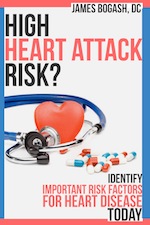
Heart stents. Coronary Stents. Angioplasty. Angiogram. Percutaneous Coronary Intervention (PCI). Regardless of what you call it, over a half MILLION of them are done per year at a cost of around $18,000 each.
Sounds great. After all, we’re saving lives with these remarkable procedures that are far, far easier on the patient then cracking open the sternum and replumbing the coronary arteries.
Well yes. And no.
For emergency procedures, the research is pretty positive. The sooner you can get this procedure done in the middle of a heart attack, the better the outcomes. That’s where the clarity ends. In general, it is pretty well accepted (in the research, but not among cardiologists who do these procedures) that for non-emergency, elective procedures, the data on PCI crashes. To the tune of about 50% of them being done inappropriately.
These are some serious numbers, serious dollars and serious risks to the patients. And just in case the patient makes it through the procedure, they have usually earned a year or so on blood thinners. In coming years, the risk of the stent closing back up again is always brewing in the background.
But all of this is ok, because before you receive ANY medical care, there is something called informed consent. Under informed consent, it is the obligation of a physician to explain the procedure being done, the risks of the procedure, the risk of NOT getting the procedure and the alternatives. It would make sense that, as the procedure becomes more invasive, the obligation to fully inform the patient should grow as well.
After all, how can you, as the patient, truly make a decision about a procedure this important (or not) without being fully informed?? You really can not.
Which brings us to this particular study. In it, researchers reviewed We performed recorded 59 conversations by 23 cardiologists among adults with known or suspected stable coronary disease at outpatient cardiology practices. These conversations were evaluated for 7 accepted elements of informed constent when it comes to helping the patient make the decision to undergo angiography and possible stenting. Here’s what they found:
- A paltry TWO (3%) conversations included all 7 elements of informed decision making.
- Another eight conversations (14%) met a more limited definition of procedure, alternatives, and risks.
When the cardiologist was more forthcoming and honest about expectations of the procedure, the outcome of the visit was drastically different:
- If the cardiologist discussed clincially viable alternatives (i.e. medications, lifestyle changes, no treatment–the term for this in informed consent is “uncertainty “), the patient was 20.5 TIMES less likely to choose the procedure.
- If the cardiologist discussed the patient’s role in deciding about having the procedure done, they were 530% less likely to undergo PCI.
- If there was an exploration of alternatives the patient was 950% less likely to choose PCI.
- Neither the presence of chest pain (angina) nor severity of symptoms were associated with choosing angiography and possible PCI.
- Overall, better informed patients were 320% less likely to choose angiography and possible PCI.
Granted, this was a small subset of practicing cardiologists and maybe the bulk of cardiology practices do not follow the practices seen in this study. But, given how rushed many specialist offices tend to be, I’m afraid this is standard.
Overall, though, I think this reflects the disconnect between what patients perceive and what the reality is of the medical procedures that are performed with a high degree of regularity in modern medicine. The list of procedures and medications that have shown little benefit in the medical research but continue to be used is quite long.
And this is heart disease. Almost entirely preventable! For a long time now we’ve known that lifestyle changes produce better outcomes than PCI and yet this procedure is still done on an elective hundreds of thousands of times per year.
So, if YOU had a stent put in, do you feel that your cardiologist fully educated you on the risks, benefits and alternatives?
